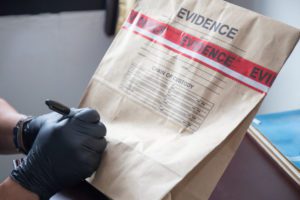 Within ten minutes of the start of the surveillance, a sergeant heard a very loud metallic bang coming from the backyard of 81 Browertown and, almost simultaneously, saw a person “wearing something blue” enter the rear door of the residence. Less than ten minutes after the sergeant’s sighting of a blue-clad person in the backyard, Radel walked out the front door of 81 Browertown, wearing a blue coat and carrying a laundry basket. Radel placed the basket in the backseat of his car, which was parked in the driveway. When Radel turned around, a detective arrested and handcuffed him. He did not resist.
Within ten minutes of the start of the surveillance, a sergeant heard a very loud metallic bang coming from the backyard of 81 Browertown and, almost simultaneously, saw a person “wearing something blue” enter the rear door of the residence. Less than ten minutes after the sergeant’s sighting of a blue-clad person in the backyard, Radel walked out the front door of 81 Browertown, wearing a blue coat and carrying a laundry basket. Radel placed the basket in the backseat of his car, which was parked in the driveway. When Radel turned around, a detective arrested and handcuffed him. He did not resist.
Sergeant Prall hoped to secure Radel’s consent to search his house but determined that Radel’s impaired condition due to alcohol or drugs ruled out that option. Sergeant Prall ordered a protective sweep of 81 Browertown for purposes of officer safety because there were weapons and other persons “potentially on the property.” Sergeant Prall came to that conclusion because two vehicles were parked in the driveway; the home’s windows had coverings, obstructing a view into the residence; the blue-jacketed person the other sergeant observed in the backyard may not have been the same person who exited the front door; and the order directed the officers to retrieve the firearms. During the approximately five-minute sweep, no one was found inside. In carrying out the sweep, however, the officers observed in plain view imitation firearms, butterfly knives, hatchets, bows and arrows, a ballistic vest, simulated police identification badges, marijuana, drug paraphernalia, a glass pipe, and a safe capable of storing firearms.
It seems unlikely that the Sergeant who planned to undermine the warrant requirement would be so concerned with the defendant’s mind state and whether he could provide a valid consent to search. The more likely scenario is that the defendant refused consent, but law enforcement understood that this fact would further undermine the validity of their “protective sweep.”
